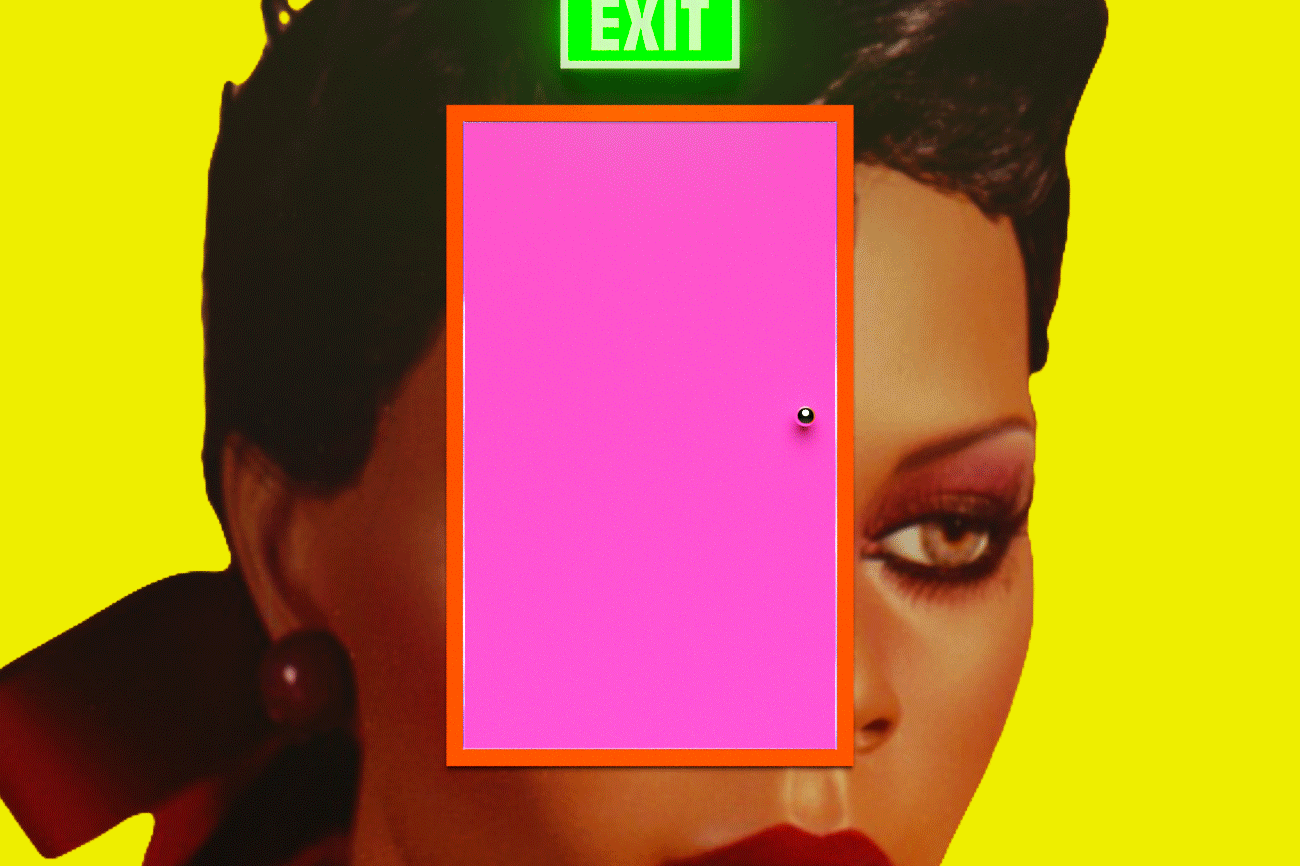[ad_1]

This column first ran in John Paul Brammer’s Hola Papi newsletter, which you can subscribe to on Substack.
¡Hola, Papi!
I’m in my early 30s. Last year, I gave up drinking. It’s been nice, and I haven’t felt compelled to pick it up again. Lately, I’ve started trying to go out more and to be more socially active. It’s working, but the problem is, I have so much social anxiety and social impostor syndrome. “You don’t belong here,” the anxiety tells me. “These people pity you and talk about you when you leave.” It makes it hard to feel at ease, which makes the social anxiety worse. I thought I got over this when I first went to college, but now it’s coming up again in my post-drinking world.
The other issue is that I’m meeting people that I feel intensely eager to connect with as friends. I haven’t felt this vulnerable in a long time! What if they don’t feel the same way? What if it’s cringey that I want to get closer to them? What if they’re just humoring me, and the niceness and connection I feel is built on politeness? Why is having human feelings so deeply embarrassing?
I know I need to be more compassionate toward myself, but it’s hard. I know I need confidence, but I don’t know where to start. I think about a recent time I went out to the club when I wanted so badly to dance, but the fear of being seen was so physically painful that all I could do was stand there.
So, how do I get out of my head and into my body? How do I stop worrying about how I’m perceived? How can I make friends effortlessly without coming on too strong, but also without making them feel like I’m not interested? And how do I do it all without the help of alcohol?
Signed,
The Impostor
Hey there, Impostor!
I think a lot of people, myself included, can relate to your letter. It’s incredibly embarrassing to be an adult with a Roth IRA and still be walking away from social interactions with thoughts like, Did they like me? Did I say the wrong thing? Are they talking about how weird I am since I left? Am I God’s most hated creation? Personally, it’s likely I will still be doing this at 136 years old after my consciousness is uploaded to the Cloud, where I will exist as a bodiless line of code, wondering if the other bodiless lines of code I just met have decided to make a private server without me.
I go back and forth on the term “impostor syndrome” as a descriptor for the suite of anxieties that attend meeting new people or being put in challenging social interactions. It’s nice to have a file to put those unruly, chaotic emotions under. But at the same time, I don’t think my problem is that I’m faking it. I know several people who’ve read Judith Butler. I understand that everyone is performing. Everyone is an actor, an impostor, in a way. I don’t know about you, but my problem is that my performance sucks. If anything, the issue is that I’m either too cold and aloof, or too eager to expose my real self to someone I desperately want to get to know. As it turns out, my “real self” is apparently an eighth-grader who just wants the cool kids to acknowledge him as worthy.
But let’s roll with “impostor syndrome” as a catchall for “fear of flopping in social settings.” Regardless of whether you are “me” or “someone else,” it is the case, at least in my mind, that impostor syndrome is a self-imposed narrative. It’s paranoia, and like all shades and flavors of paranoia, this one too is rooted in delusion.
Now, when I say that, I don’t mean that no one in a group of strangers is judging you, thinking unkind things about you, or, worse yet, dismissing you altogether. I don’t want to freak you out, but the reality is, these are definite possibilities. That’s life! It’s not delusional to think that you won’t be some people’s cup of tea. If anything, it’s astute. What’s delusional is this idea that some people not liking you is a massive problem that must supersede everything else on your list of concerns. The delusion is that you have to care — a lot — about strangers approving of you, and that if you don’t get that approval, it must mean there’s something fundamentally wrong with you, that you are a pathetic worm person no one will ever love. No one is thinking about you that hard.
But if impostor syndrome is delusional, then why do we cling to it so dearly? Why, if it does nothing but hinder us, would we elect to worry so much? Well, for one, of course, anxiety is hardly a choice. But in some ways, I think impostor syndrome is a defense mechanism gone awry. For those of us who come from backgrounds where reading the room felt like a matter of life or death (gay in rural Oklahoma, for example), it’s possible that we developed a reflexive instinct to interrogate our immediate surroundings to calculate our optimal position in it: Do I belong here? Are these people friends or foes? Is this a place where it would be safer to be invisible? Some of us learned the hard way to be on guard at all times and to flee at the very first sign of danger.
Impostor syndrome also preempts criticism. Sometimes, we’re cruel to ourselves just to beat other people to the punch. Walking into a room thinking, Remember, you’re a fundamentally flawed human being, so try not to let that show might sound insane on paper, but in practice, it can feel like you’re getting ahead of something, like you’re protecting yourself from being blindsided by rejection or unpleasant information.
Perhaps you’ve already picked up on this, but this line of thinking makes complete sense for a person who already, for whatever reason, doesn’t like themselves very much. Getting back to me, my favorite and least favorite person on earth, it’s almost as if I view meeting new people as a desperate way to disprove the nasty things I suspect about myself — that I’m unattractive, that I don’t know how to get close to people, that I don’t register as someone people want to get to know better, that I don’t sparkle, I don’t shine. Social settings with strangers become a sort of test site for these unsavory hypotheses. Will I be proven right, or, God willing, proven wrong?
With all this swirling anxiety, it’s no wonder so many people turn to alcohol or drugs to get out of their own heads. So then, without those, what to do?
Well, what’s helped me is to remind myself that, yes, impostor syndrome is indeed a narrative, and that I’m a writer. I can rework the story. When I feel those familiar fears crop up when meeting new people, I remind myself, These are fictions. I try, as best I can, to forget the ridiculously high stakes I tend to impose on interactions with new people and focus instead on this other person. Who are they? What are they all about? What do they like?
Whether this person is my new best friend or a new acquaintance or merely someone to talk to for a bit, I try to remind myself how nice it is to simply be in contact with another human being. I don’t want to lead with fear in my interactions. I want to lead with curiosity and genuine interest. That, I believe, is the very best I can do, and my best is all I’ve got. If they’re judging me, if they’re dismissing me, if they’re thinking, I’ll never speak to this person again, it’s none of my business. My best foot is forward. Some people will meet me there, and some won’t. That’s the way it is.
It can be helpful, Impostor, to work on our relationship with ourselves as a way to inform how we approach relationships with others, including new people. I recommend meditating as a way to practice placing your attention on certain thoughts. The fears will come up, yes, but the fact that they exist doesn’t mean we have to feed them. Becoming aware of our anxious sentiments is the first step to being able to deal with them. For me, when I find myself thinking unkind or paranoid thoughts, I like to mentally restate them in a ridiculous voice, crumple them up as if they were written on paper, and throw them out as a way of acknowledging their presence before tossing them aside.
I won’t pretend like any of this is easy, or that backsliding won’t happen! There are still nights where I go home thinking, God, I fucked that up, or, This is why I should stay home, or, Why can’t you just be normal? Or even, worse still, I wish I was someone else. But I also know that it’s possible for me, for us all, to make genuine connections with other people, and that good things often exist just outside our comfort zone, and that, ultimately, I’ll be okay. Sometimes just reminding myself, You are safe, is enough to get me to unclench and relax.
I don’t find myself in many rooms that I don’t belong in, Impostor, if you don’t count “the Eataly in Soho at 2:15 in the morning last week,” which is something I don’t want to talk about right now. Because the thing is, to return to what is likely my oversimplification or a whole-cloth misreading of Judy B., everyone is doing a performance. We’re all clowns here. Just enjoy your time at the circus.
Con mucho amor,
Papi
Originally published on April 11, 2024.
Purchase JP Brammer’s book Hola Papi: How to Come Out in a Walmart Parking Lot and Other Life Lessons, here.
Related
- ‘I’m Paralyzed by Anxiety’
- ‘I Wish I Had a Best Friend’
[ad_2]
J.P. Brammer , 2024-04-19 12:00:05
Source link


